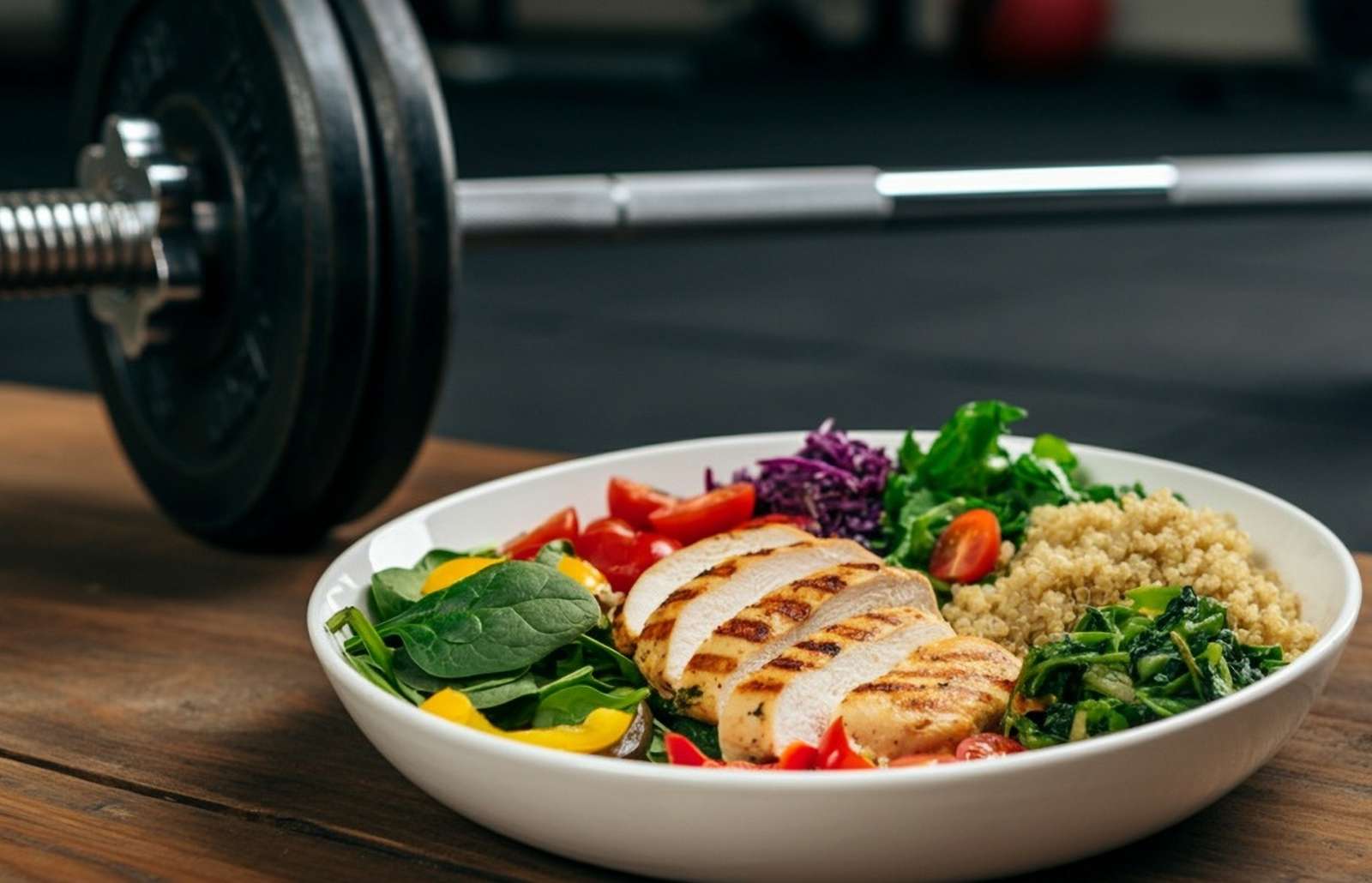
Fat loss gets romanticised. Shred season. Discipline. Clean eating.
But when the reality sets in, saying no to pizza, managing weekends out, fitting meals around real life, it’s easy to feel frustrated or defeated.
At Strength Lab, we coach clients through all stages of fat loss. Most aren’t professional athletes. They’re busy professionals, parents or competitors balancing work, family and a social life. They want results, but they don’t want to sacrifice their sanity or identity.
This post is about how to stay in a calorie deficit without making your life miserable. It’s mindset, strategy and practicality rolled into one.
First: What’s a Deficit and Why Does It Matter?
A calorie deficit means you’re consuming fewer calories than your body burns. This forces your body to tap into stored energy (body fat) to meet the shortfall.
No deficit = no fat loss.
It doesn’t mean starving. It means being strategic, consistent and patient.
Why Deficits Feel Hard (and What to Do About It)
Being in a deficit is not always fun. You may feel a little hungrier or slightly lower on energy. That’s expected. But it should never feel unmanageable.
Here’s what makes it harder than it needs to be:
- Overly restrictive food rules
- Skipping meals and bingeing later
- No plan for weekends
- Poor sleep and stress management
- Thinking every meal has to be ‘perfect’
At Strength Lab, our personal trainers help clients move away from this all-or-nothing thinking into something more sustainable.
5 Strategies to Stay in a Deficit Without Losing Your Mind
1. Use a Flexible Meal Framework
You don’t need a rigid meal plan. But you do need structure.
Try the 80/20 rule:
- 80% of your intake comes from whole foods (lean protein, veggies, good carbs and fats)
- 20% is flexible, use it for flavour, fun and social events
Tip: Build each meal with a protein + fibre + volume. It keeps you full and makes room for variety.
2. Track Smart, Not Perfect
You don’t have to weigh every leaf of spinach, but you do need awareness.
Tracking tips:
- Use a food tracking app (like MyFitnessPal or MacrosFirst)
- Track before you eat, not after
- Log higher-calorie days in advance (like social events)
- Accept a small margin of error—it’s about consistency, not precision
3. Plan for Social Events Instead of Avoiding Them
You don’t need to become a hermit to lose fat. You just need a plan.
Here’s how to approach meals out:
- Check the menu beforehand and log the meal in advance
- Skip the entrée, focus on protein and veg-based mains
- Avoid drinking your calories by opting for light spirits or low-calorie mixers
- Eat lighter earlier in the day if you’re going big at night
- Decline extras like chips, bread baskets and desserts you’re not excited about
Reminder: One meal out doesn’t ruin your deficit. But three untracked nights in a row might.
4. Don’t Let One Off-Plan Day Spiral into a Week
One bad meal isn’t the problem. The problem is what happens next.
You don’t need to “start over on Monday.” Just move on.
What to do:
- Resume normal eating the next day
- Don’t slash calories or overdo cardio to “make up for it”
- Reflect on what triggered it, was it stress, lack of prep or low calories?
Fat loss is never linear. Progress comes from stacking good days, not chasing perfection.
5. Give Yourself a Time Limit
You’re not meant to live in a deficit forever.
Most Strength Lab clients stay in one for 8–16 weeks, depending on their starting point and lifestyle. After that, we reverse diet or hold at maintenance to protect muscle and mental health.
If your deficit is dragging out beyond 4-5 months with no break, it’s time to reassess.
Mindset Shifts That Make Fat Loss Easier
Here’s what our most successful clients believe:
- “I control my food. It doesn’t control me.”
- “I can make progress and still have a life.”
- “Not every meal needs to be exciting. It needs to be effective.”
- “I don’t need to be perfect. I need to be consistent.”
This isn’t about suffering. It’s about learning to make choices aligned with your goals, even when life throws a curveball.
What It Might Look Like in Real Life
Busy professional, tracking macros and travelling weekly:
→ Eats the same breakfast and lunch most weekdays. Dials back evening meals if a work dinner is planned.
Postpartum mum with low energy and unpredictable days:
→ Keeps prepped protein and veg in the fridge. Tracks 3 days a week to stay in check without overwhelm.
Someone trying to lose belly fat:
→ Hits daily step targets, trains 3x per week, keeps meals consistent during the week and moderates weekends with portion control, not restriction.
Competitor in mini-cut phase:
→ Follows a strict macro target but builds in 1 flexible meal per week for sanity and sustainability.
Final Word: Deficit Doesn’t Mean Deprivation
You don’t need to cut carbs, avoid restaurants or punish yourself to lose fat. You need a plan that works with your life, not against it.
At Strength Lab, we coach clients to navigate fat loss with structure, education and flexibility. That means results without sacrificing your lifestyle, social life or sanity.
Becoming a dad is one of life’s biggest joys but it’s also a massive shift in priorities, energy and routine. Sleepless nights, inconsistent schedules and [...]
You’re doing all the right things. You’re training hard, eating well and sticking to the plan. The fat was dropping… and now? Nothing. Fat loss [...]
Join our mailing list
GET EXPERT TIPS & MEMBER-ONLY OFFERS
We only send what’s worth your time. Expect high-value content, exclusive offers and updates from our coaches. Unsubscribe anytime.



